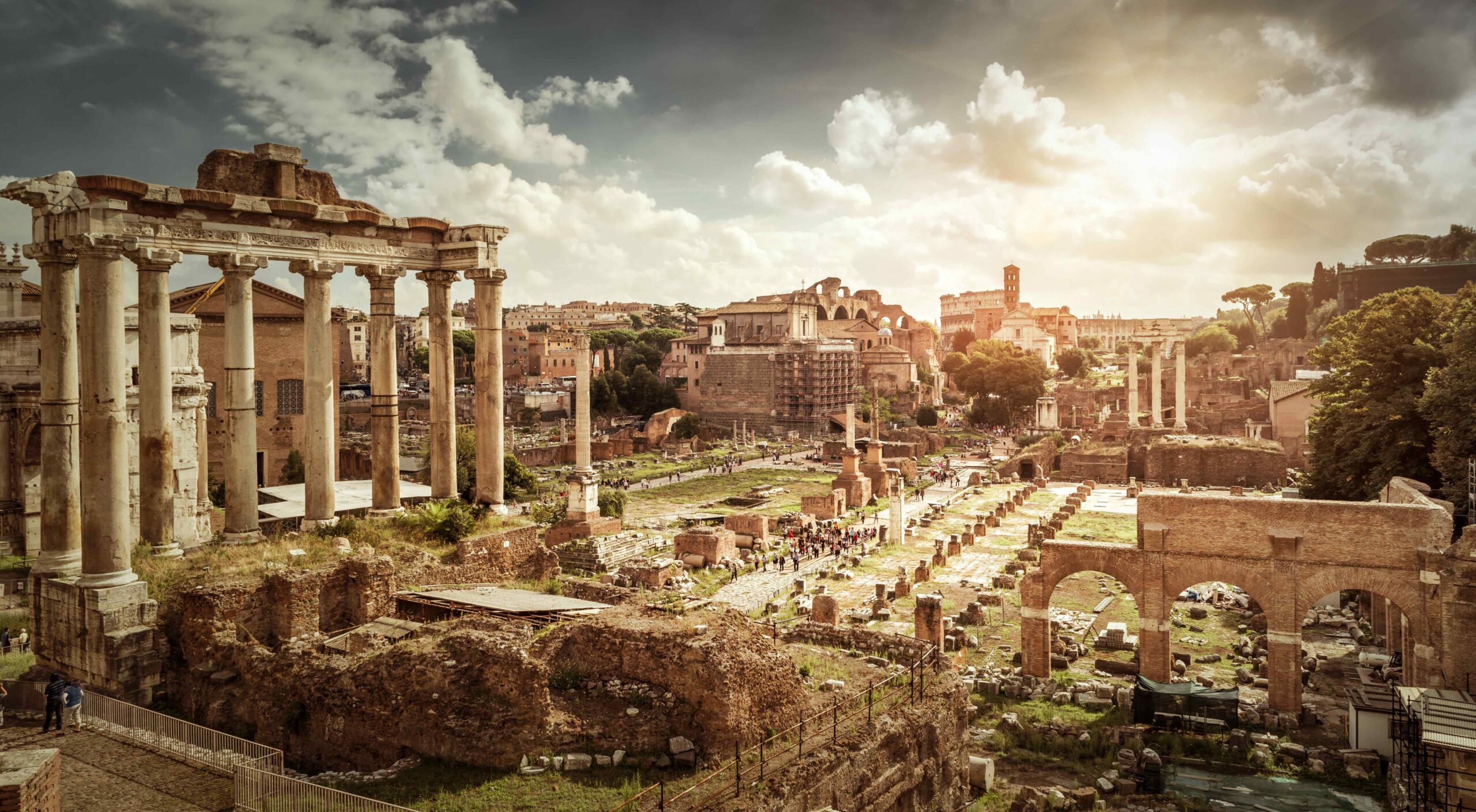Meaning
The name Giulio is derived from the Latin name Julius, a cognomen of great historical significance.
Julius itself has uncertain roots but was likely connected to the gens Iulia, a prominent Roman family renowned for producing several notable individuals, including Julius Caesar.
Caesar’s rise to power and the establishment of the Julian dynasty solidified the name’s association with leadership, strength, and influence.
The meaning of Julius is debated by scholars, with some suggesting it might relate to “youthful” or “downy-bearded,” possibly referring to a young, virile male.
Others propose connections to “Jupiter,” the king of the Roman gods, further emphasizing its connotations of power and authority.
Over time, Julius evolved into various forms across different languages. In Italian, it transformed into Giulio, a name that carries the same weight of history and significance as its Latin counterpart.
The name Giulio continues to be popular in Italy and other parts of Europe, evoking a sense of tradition, strength, and historical connection.
The meaning of a word or name can evolve over time, influenced by cultural shifts, historical events, and even personal interpretations. Understanding these nuances allows for a deeper appreciation of language’s dynamism.
Names like Giulio exemplify this evolution. Originating from Latin, Giulio carries the meaning “youthful” or “downy-bearded,” referencing the biblical Julius Caesar. This connection to a powerful historical figure contributed to Giulio’s enduring popularity in Italy and beyond.
Over centuries, names often acquire nicknames based on various factors, including shortened versions, phonetic variations, or even personality traits. For Giulio, some common nicknames might include Jules, Jul, or Gio, reflecting different linguistic influences and personal preferences.
Variations of a name can emerge due to regional dialects, cultural adaptations, or simply transliteration errors. In Italian, for instance, Giulio might be spelled Guilio or even Giulietto, showcasing the flexibility inherent in language.
The evolution of meaning, nicknames, and variations demonstrate how names become more than mere identifiers; they embody history, identity, and the ever-changing tapestry of human communication.

Origin and History
Giulio is a masculine given name of Italian origin, derived from the Latin name Julius.
The name Julius has deep roots in Roman history and mythology. It was the family name (gens) of Gaius Julius Caesar, one of the most famous Roman generals and statesman.
Julius became a popular name among Romans, signifying strength, power, and ambition.
Its popularity spread throughout Europe with the rise of the Roman Empire.
In Italy, Giulio is the Italian equivalent of Julius.
The name is widely used in Italy and other parts of Southern Europe, such as Spain, France, and Portugal.
Variations of Giulio exist in other languages, such as Julien in French and Julio in Spanish.
Giulio retains its strong historical associations and continues to be a popular name choice for boys in Italy and beyond.
Giulio is a masculine given name of Latin origin.
It derives from the Latin name Julius, which itself has roots in the gens Iulia, an influential patrician family in ancient Rome.
The meaning of “Julius” is uncertain, but it has been linked to the Latin words “iuvenis,” meaning “youthful,” or “iovis,” a variant of Jupiter, the Roman king of gods.
Throughout history, Giulio has held significant cultural weight, particularly within the Western world. Here’s a breakdown of its prominence:
- Ancient Rome: The gens Iulia was incredibly influential in Roman politics and society. Figures like Julius Caesar, renowned general and statesman, made the name synonymous with power and leadership.
- Medieval Europe: The name continued to be popular, particularly among the nobility. It often appeared in conjunction with other names or as part of elaborate compound names.
- Renaissance Italy: During this period of great artistic and intellectual flourishing, Giulio experienced a resurgence in popularity. Artists like Raphael Sanzio (known as simply Raphael) contributed to its association with creativity and refinement.
- Modern Era: Giulio remains a respected name across Europe, particularly in Italy, where it carries strong cultural connotations. It is also recognized internationally as a classic and timeless choice.
The name Giulio continues to resonate with individuals who appreciate its historical weight, literary connections, and sense of elegance.
Evolution Through Time
The name Giulio is a Latin given name that has deep historical roots, evolving throughout time from its ancient origins to its modern-day usage.
Its meaning stems from the Roman family name “Julius,” which itself derived from the gens Julia, one of the most prominent patrician families in Roman history. The gens Julia’s ancestor was traced back to the legendary mythical figure Iulus, son of Aeneas and descendant of the Trojan hero.
During the Middle Ages, the name Julius enjoyed considerable popularity in Europe, particularly amongst the nobility. However, its usage often took on regional variations, including forms such as Guilelmus, Guillelme, or Guillaume, reflecting linguistic shifts across different languages. This period saw a shift from primarily using classical Latin to more vernacular tongues.
The Renaissance witnessed a renewed interest in Classical antiquity and a resurgence of the name Julius in its original form. During this time of intellectual and cultural rebirth, artists, scholars, and writers embraced the classical heritage, including names like Giulio, associating them with knowledge, refinement, and creativity.
The popularity of Giulio also grew as an artistic name during the Renaissance. Notable figures such as painter and architect Raphael Sanzio da Urbino, who was born Raffaello, but often referred to as Raphael, contributed to its association with artistic excellence and brilliance.
Today, Giulio remains a cherished name in Italian-speaking countries and beyond, evoking a sense of history, heritage, and cultural significance. It continues to be passed down through generations, connecting individuals to their ancestral roots while embodying the timeless qualities attributed to its classical origins.
Giulio, a traditionally Italian given name, carries with it a rich history and a strong connection to classical antiquity.
Its root lies in the _Latin_ name *Julius*, which itself is believed to derive from the Etruscan word *ioulu*. The meaning of this original term is not definitively known, but various theories have been proposed. Some scholars suggest it may relate to the _Julian calendar_, named after the prominent Roman family Julius.
In ancient Rome, the name *Julius* gained immense prominence through the *Julio-Claudian dynasty*, a series of emperors who ruled from 27 BC to 68 AD. The most famous member of this dynasty was undoubtedly *Gaius Julius Caesar*, whose military prowess and political reforms shaped the course of Roman history.
Due to the legacy of the Julian family, *Julius* became an extremely popular name throughout the Roman Empire and beyond. It spread widely through trade routes and cultural exchange, eventually finding its way into various languages, including Italian.
In Italian, the name evolved into *Giulio*, retaining its association with strength, leadership, and historical significance. Throughout the centuries, it has been a common choice for boys in Italy and other countries influenced by Italian culture.
- Best Datanyze Alternatives for 2025 - April 26, 2025
- Best Coldlytics Alternatives for 2025 - April 25, 2025
- Best Brevo Alternatives for 2025 - April 25, 2025

